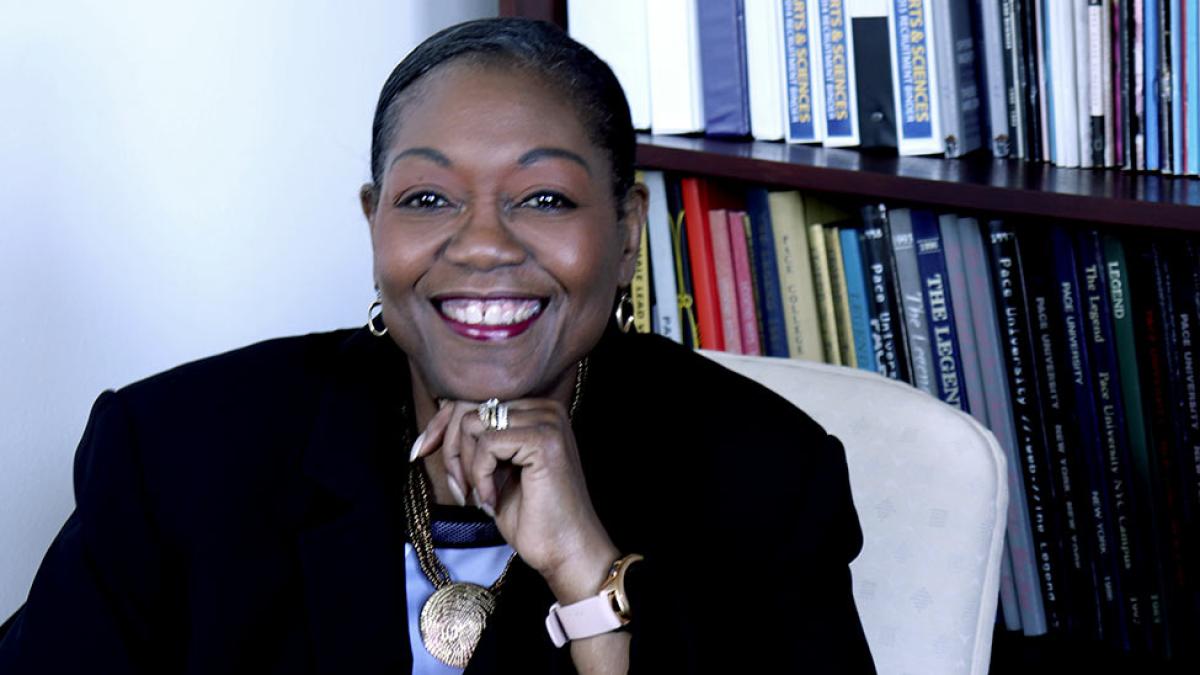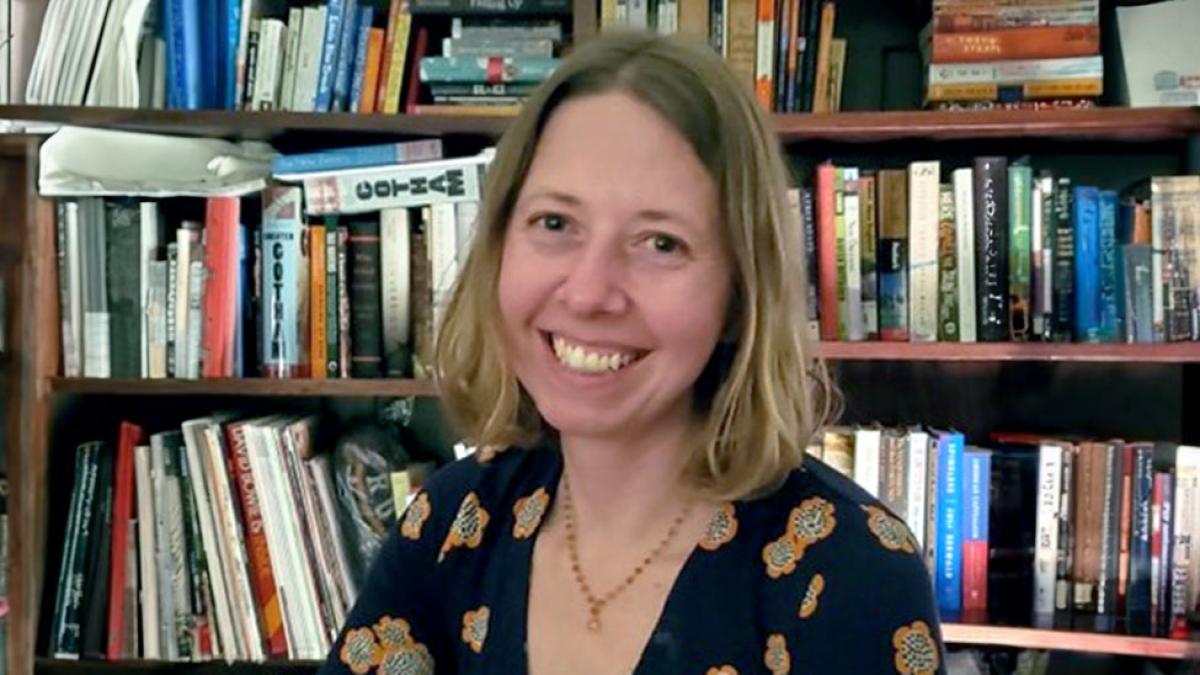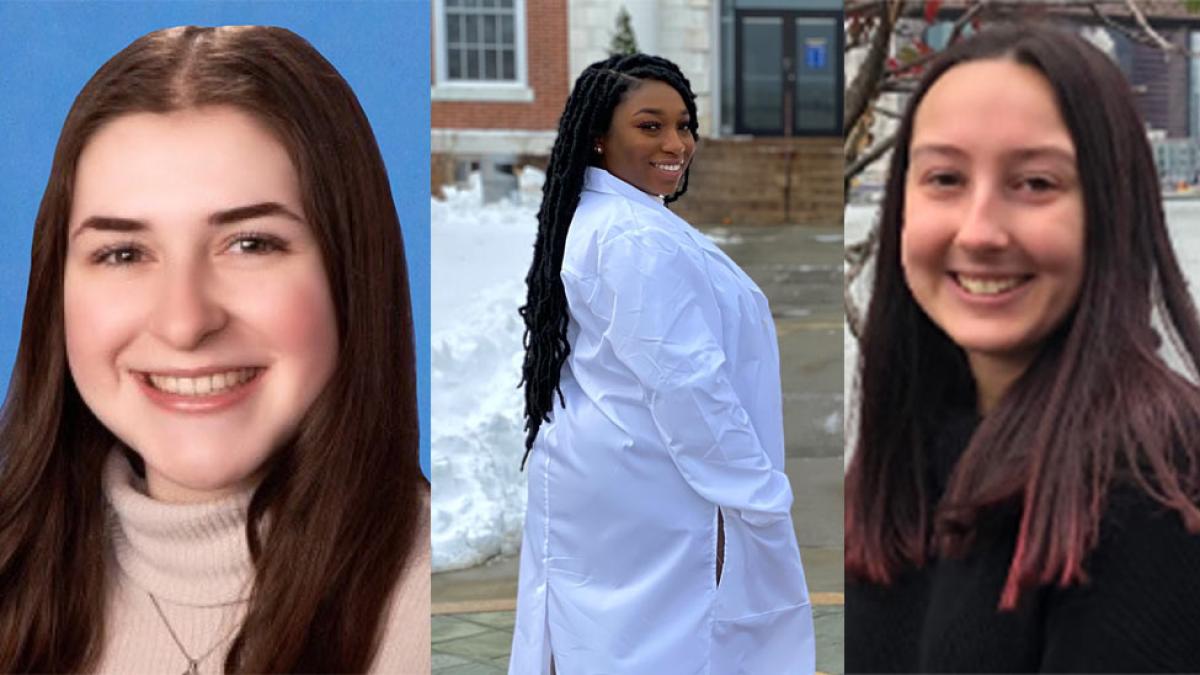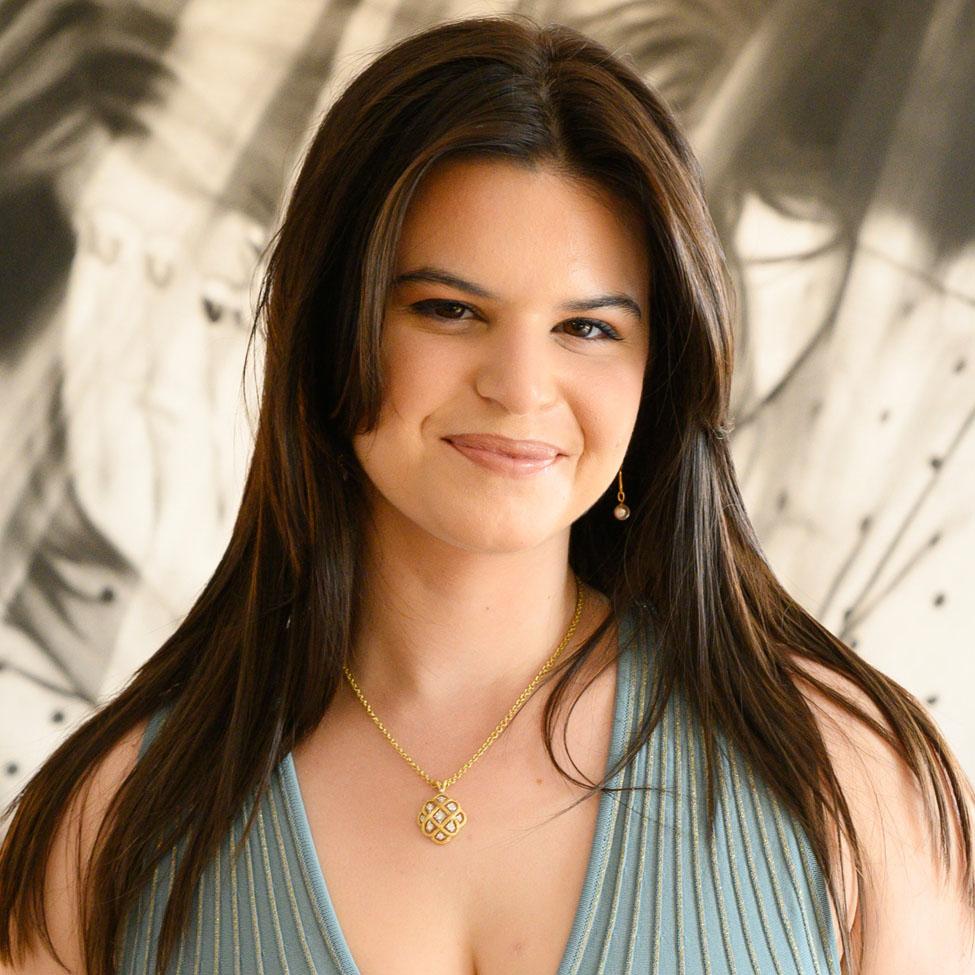
CNN This Morning: Professor Randolph McLaughlin on SCOTUS Affirmative Action Decision
Elisabeth Haub School of Law Professor Randolph McLaughlin was featured on CNN This Morning to discuss the recent Affirmative Action decision by the Supreme Court.

The Supreme Court Can End Affirmative Action–But it Can’t Reverse the Course of History
Pace University President Marvin Krislov pens an op-ed in Fortune about the U.S. Supreme Court ending the use of affirmative action in college admissions.
Producing a Silver Screen Dream
When Eden Alcufrom '24 first stepped into the Lubin School of Business, she brought a unique set of skills from the film industry with her but was ready to master a new industry—business. Upon graduating in 2024, Eden will take on the film world with her passion for producing, a business degree from Lubin, and experience in both industries, all of which will set her apart.

Eden Alcufrom
Class of 2024
Currently Studying: MBA in General Business
Current Internship: Developmental and Production Intern for Marisa Vitali, Emergent Pictures
Pronouns: She/Her

When Eden Alcufrom first stepped into the Lubin School of Business, she brought a unique set of skills from the film industry with her but was ready to master a new industry—business. Upon graduating in 2024, Eden will take on the film world with her passion for producing, a business degree from Lubin, and experience in both industries, all of which will set her apart.
How has the Lubin School of Business helped you prepare for your current internship?
I was able to gain confidence in my work thanks to group projects and encouragement from my professors, which has and will help me be successful in my current and future professional experiences and internships. I would specifically like to thank Professor Chris Ramos for proactively helping me in my internship search. He went through my resume and contacted people in his network who he thought would be a match with my skills and knowledge.
What attracted you to this internship?
After completing my undergraduate degree in film studies with a minor in entrepreneurship at The New School, I became even more passionate about film and the many different steps it takes to develop and produce a film. Additionally, upon graduating from the Lubin School of Business with my MBA, I will pursue a career in film production. The knowledge that I am accumulating during this internship will enable me to understand the business aspect of film production and how it can affect or benefit the creative aspect of a project. Becoming a film producer is my ultimate career goal, so having direct contact and access to someone currently in that role allows me to obtain real knowledge on this position.
Describe what a typical day looks like as an intern with Marisa Vitali at Emergent Pictures.
A typical day with producer Marisa Vitali and Emergent Pictures includes going through a collaborative board and completing the tasks that are required of me for that week. Every Monday, Marisa and I meet to go over the status of my tasks, any questions about what we have worked on together, and the different strategies that are required for specific aspects of the projects that we are working on together.
What has been the highlight or most enjoyable aspect of your internship so far?
While there have been many highlights during this experience so far, I am most enjoying having an ongoing dialogue with Marisa about my career goals and how she can best cater this internship to me to help me gain as much knowledge about this field and position as possible.
How has this experience shaped or impacted your career goals?
This experience has made me even more interested in this field. I cannot wait to start working on my own projects where I will be able to handle production.
How will this experience impact your next semester at Lubin?
This experience allows me to fully grasp the area of film I would like to work in after graduating in May 2024. Next semester, I will be taking an arts and entertainment management course that will reinforce the knowledge that I have gained during this internship and will prepare me for my job search.
Regardless of the industry you are looking to pursue an internship in, make sure to take advantage of every opportunity that arises... Having experience across many industries will help you better understand what interests you and what doesn't.
Do you have any advice for other Lubin students who would like to pursue an internship in the future?
Regardless of the industry you are looking to pursue an internship in, make sure to take advantage of every opportunity that arises. This will help you form personal communication skills while also allowing you to develop an understanding of how to navigate your upcoming professional life. Having experience across many industries will help you better understand what interests you and what doesn't.
Connect with Eden:
A Human Rights Approach to Climate-Induced Displacement
Pace | Haub Environmental Law Professor Camila Bustos co-authored an article titled “A Human Rights Approach to Climate-Induced Displacement: A Case Study in Central America and Colombia” which was published in the Michigan State International Law Review.
The article highlights the human rights obligations of government and international communities for individuals facing climate-induced displacement across and within borders.
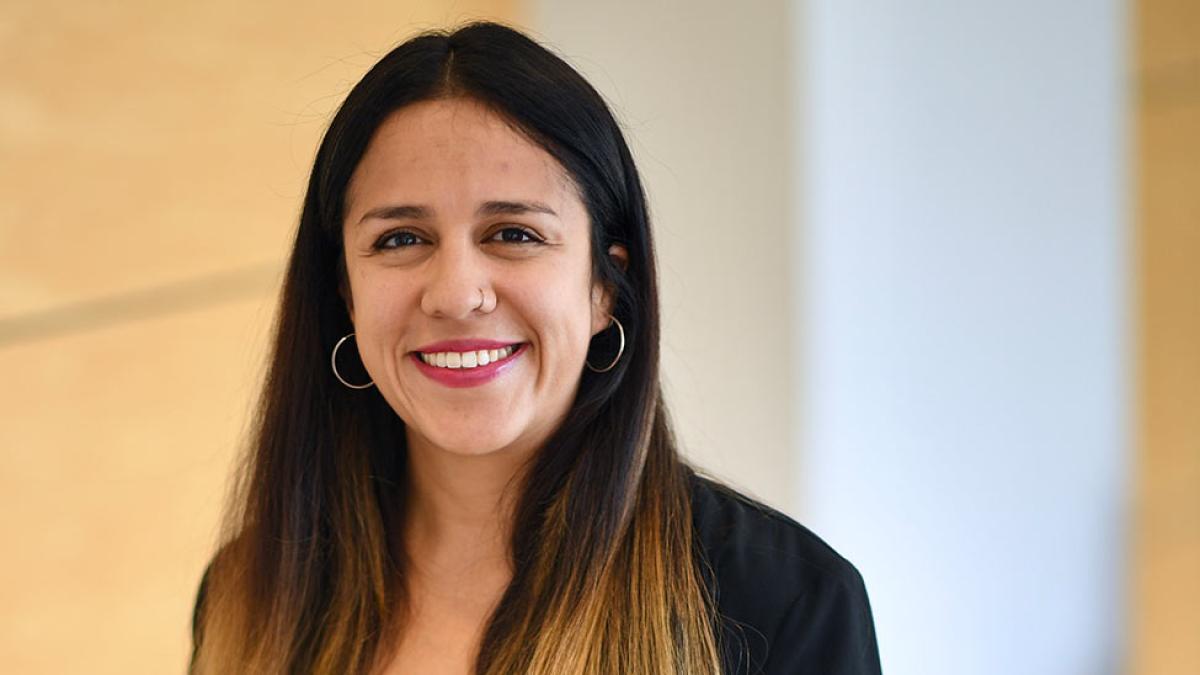
Pace | Haub Environmental Law Professor Camila Bustos co-authored an article titled “A Human Rights Approach to Climate-Induced Displacement: A Case Study in Central America and Colombia” which was published in the Michigan State International Law Review.
The article highlights the human rights obligations of government and international communities for individuals facing climate-induced displacement across and within borders.
Set and Story: April Bartlett and The Art of Scenic Design
April Bartlett’s career as a theatrical designer has spanned from intimate off-Broadway productions to The Today Show. When the pandemic shut down production, she began refocusing her energies and found a new way to continue telling stories by supporting the next generation of designers, makers, and artists.


For 15 years, April Bartlett was the art director overseeing the production design team that made sure The Today Show went on air, and looked good, every single day.
“It was a lot,” she explains with a laugh. “The Art Department was responsible for all of the visual aspects of the show. It could be as simple as dressing the set for an interview, to planning a live on-air wedding in four weeks. I’ve done everything from snowscapes on the Plaza with live skiing, to swimming pools, to obstacle courses, fashion shows, and six-foot-tall cakes. That’s live television in a nutshell; you have to be ready for anything and everything. You go back because of the energy and because you want to give the stories a visual voice.”

Her work on The Today Show supported her passion for developing and designing for new works through her work off-Broadway to her years as an adjunct professor with the Sands College of Performing Arts. “My work spanned high-budget NBCUniversal gigs with VIPs in attendance, to smaller off-Broadway blackbox productions that we needed to make happen,” Bartlett says.
In fact, Bartlett was nominated for a Daytime Emmy Award in 2011 for Outstanding Achievement in Art Direction and won for Best Morning Show in 2019–2020 for her collaborative design work on The Today Show.
When the pandemic shut down production of The Today Show, Bartlett wanted to find a new way to continue to tell stories. She’d always known that teaching would be part of her life someday—she had pursued a graduate degree and an adjunct role at Pace because of her desire to return to the classroom—but the pandemic solidified her decision to pivot to education full-time. “The pandemic was a turning point for everyone. I feel as though students during that time especially needed a listening ear and heartfelt guidance,” she explains. “I felt that this was a pivot needed not just for my soul, but also for the students who needed this new kind of understanding. I wanted to be that supportive educator for them. Someone that would lift them up, challenge them to take risks for their art and be their advocate.”
I personally love this role. I’m hands on in the shop and in the theaters. This is where the magic happens. Building sets and props that create the world of the play.
Bartlett isn’t one to do things halfway. “Now that I’m here, all the time, this is basically where I live,” she admits. Not only is she now teaching in the BFA in Production and Design for Stage and Screen program full-time, but she’s also the Production Coordinator for all performances at Pace. “I’m responsible for the coordination of everything that happens on the scenery end of our productions,” Bartlett says. She consistently juggles the roles of designer, technical director, producer, and more, while also still keeping up with her classes—which is just how she likes it. “I personally love this role. I’m hands on in the studios, the shops, and in the theaters. This is where the magic happens. Creating sets and props that create the world of the play.”
Audiences likely don’t realize how much of the magic of the stage comes from the visual elements Bartlett and her students’ craft. “The moment of artistic collision in theatrical storytelling is when the actors and the design elements come together to create a magical yet fleeting emotional moment for the audience to experience, everything unified together to tell the story,” Bartlett says. “Learning how to bring all of our elements together to create one breathtaking moment after another is what we’re teaching here at Pace.”
In a more tangible aspect, without lighting, you can’t see the actors. Without sets and props, there’s no setting. “We’re creating the world that allows the actor to be present in the story. We hope to give them enough, so the actor has things to interact with but not be taken out of the moment, rather be lifted up into the moment,” Bartlett explains.
We’re creating the world that allows the actor to be present in the story.
Bartlett and her colleagues aren’t just teaching industry skills, but empowering students to be creative collaborators. “As a designer, learning how to respect your fellow teammates for what they do is half the battle,” she says. “Here at Pace, we are creating a community of respect. Whether you’re a designer, a crew head, a carpenter, you’re taught to understand and respect everyone’s different roles and value what they bring to the table.”
Bartlett has a compelling reason to take pride in what she does at Pace. “Our students are hungry. They bring an energy to the classroom that’s exciting and invigorating.” she says. “The magic of the classroom comes from all of us together creating and collaborating in the same space at the same time, especially when it comes to that magical storytelling moment.”
More from Pace
Ka’ramuu Kush, a faculty member of the Sands College of Performing Arts, is sharing wisdom and experience gained from many years as a working actor, director, and writer with students—and has already made quite an impact.
Pace University’s board of trustees voted yesterday to launch the Sands College of Performing Arts this fall. The college, which will commence with the 2023–2024 academic year, is named in recognition of a $25 million gift from Pamela and Rob Sands, J.D. ’84, and becomes the seventh school and college within Pace University.
A new cohort of leaders at Pace’s School of Performing Arts is embracing change and continuing to enable students’ professional success—all while guiding the way toward a more equitable arts community.
Three Leaders in Business, Law, Technology and Finance Join Advisory Board for Elisabeth Haub School of Law’s Sustainable Business Law Hub
The Elisabeth Haub School of Law at Pace University welcomed three prominent leaders in business, law, technology and finance as Advisory Board Members of the School’s recently launched Sustainable Business Law Hub.
Professor Jessica Miles, Expert in Domestic Violence Law and Family Law, is One of Four New Faculty Members Joining the Elisabeth Haub School of Law at Pace University
The Elisabeth Haub School of Law at Pace University is pleased to announce that Jessica Miles will join its faculty as a tenure-track Associate Professor of Law.


The Elisabeth Haub School of Law at Pace University is pleased to announce that Jessica Miles will join its faculty as a tenure-track Associate Professor of Law. Previously, Professor Miles was an Associate Professor of Law with Seton Hall Law School’s Center for Social Justice, where she co-taught the Family Law Clinic. At Seton Hall, Professor Miles also taught Evidence, Torts, Domestic Violence Law, Family Law, and Adoption Law. She is one of four new faculty members who will be joining Haub Law this fall.
"I am thrilled to join the Elisabeth Haub School of Law with its stellar faculty and unwavering commitment to the student experience and to preparing students for the practice of law,” said Professor Miles. “I look forward to immersing myself in the Haub Law community. As a scholar focused on efforts to combat domestic violence, I am also happy to have the opportunity to collaborate with the phenomenal Pace Women's Justice Center."
During her time at Seton Hall, Professor Miles was voted Professor of the Year by the Seton Hall Law student body in 2022 and 2017. In addition, she was selected as Seton Hall University Teacher of the Year by a university-wide faculty committee in 2020. Professor Miles’s scholarship examines the law’s intersection with domestic violence in numerous fields, including family law, criminal law, and the First Amendment. Her most recent article, Straight Outta SCOTUS: Domestic Violence, True Threats and Free Speech was published with the University of Miami Law Review and reprinted in Thomson Reuters' Women and the Law. Professor Miles earned her BA, cum laude, in political science and history from Duke University and her JD from New York University School of Law where she served as a Staff Editor on the Review of Law and Social Change.
At Haub Law, Professor Miles will teach several courses, including Torts, Family Law, and Domestic Violence Law. “Professor Miles is an exciting addition to our Haub Law community,” said Elisabeth Haub School of Law at Pace University Dean Horace E. Anderson Jr. “Her advocacy and scholarship in the areas of domestic violence law and family law are extremely impressive and will have a direct and positive impact on our students in the classroom and beyond.”
Prior to joining the Seton Hall Law faculty, Professor Miles gained extensive practice experience as a public interest lawyer representing indigent clients in a range of family law cases with nonprofit organizations in Pennsylvania, Maryland and Florida as well as with the Committee for Public Counsel Services in Massachusetts. Professor Miles has also taught continuing legal education courses for attorneys and judges in New Jersey, New York, Massachusetts and New Mexico.
Pace University Student Receives Prestigious Gilman International Scholarship
Liani Frederick, a third-year student majoring in Psychology, has earned a scholarship from the federal government to take her studies on the road, Pace University today announced.
In winning the Benjamin A. Gilman International Scholarship, Frederick ’25 is among 2,100 undergraduate students from across the country who will be studying abroad with the support through the U.S. Department of the State Bureau of Educational and Cultural Affairs (ECA), which aims to expand access to international education opportunities to Americans across the socioeconomic spectrum.
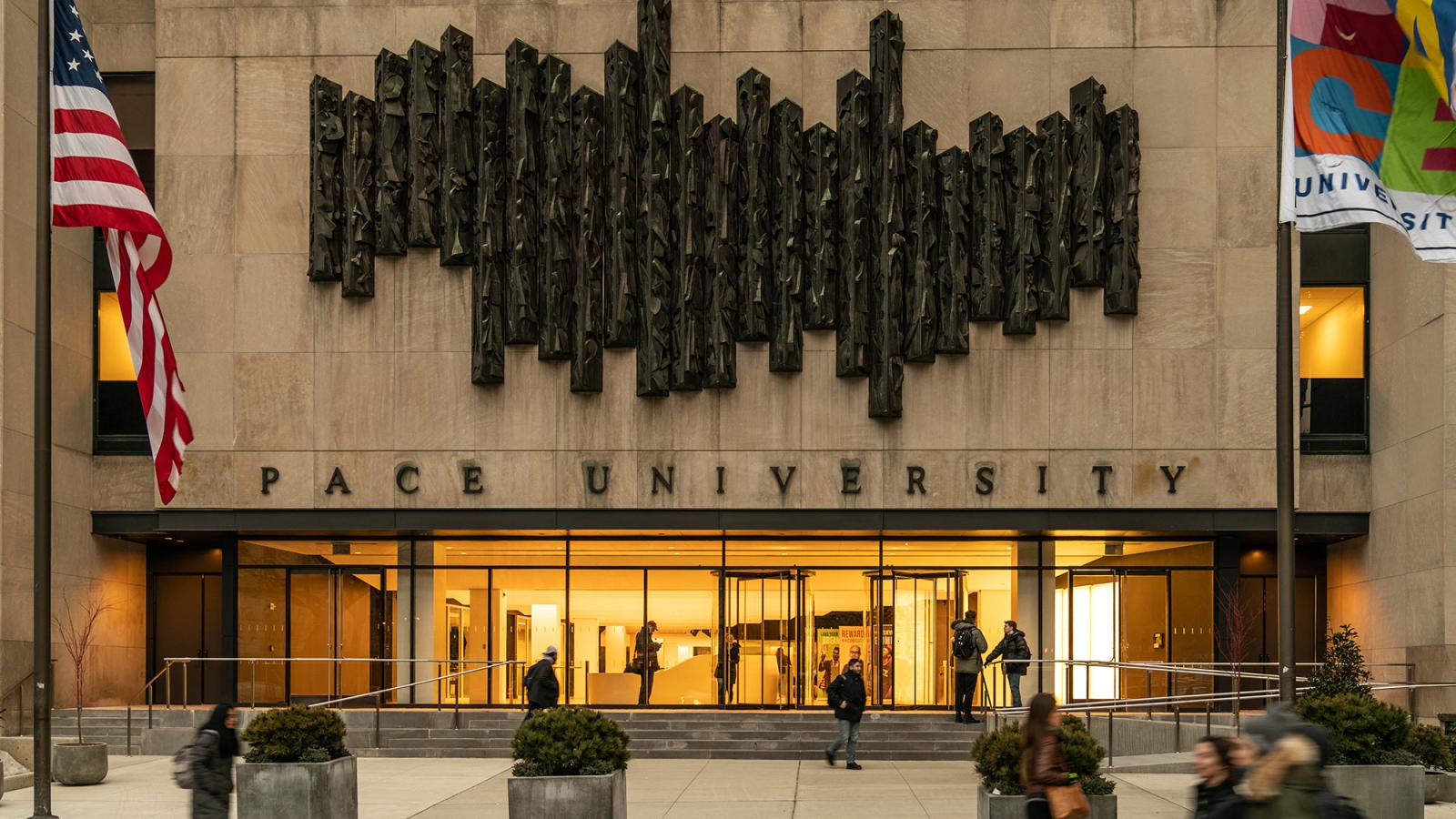
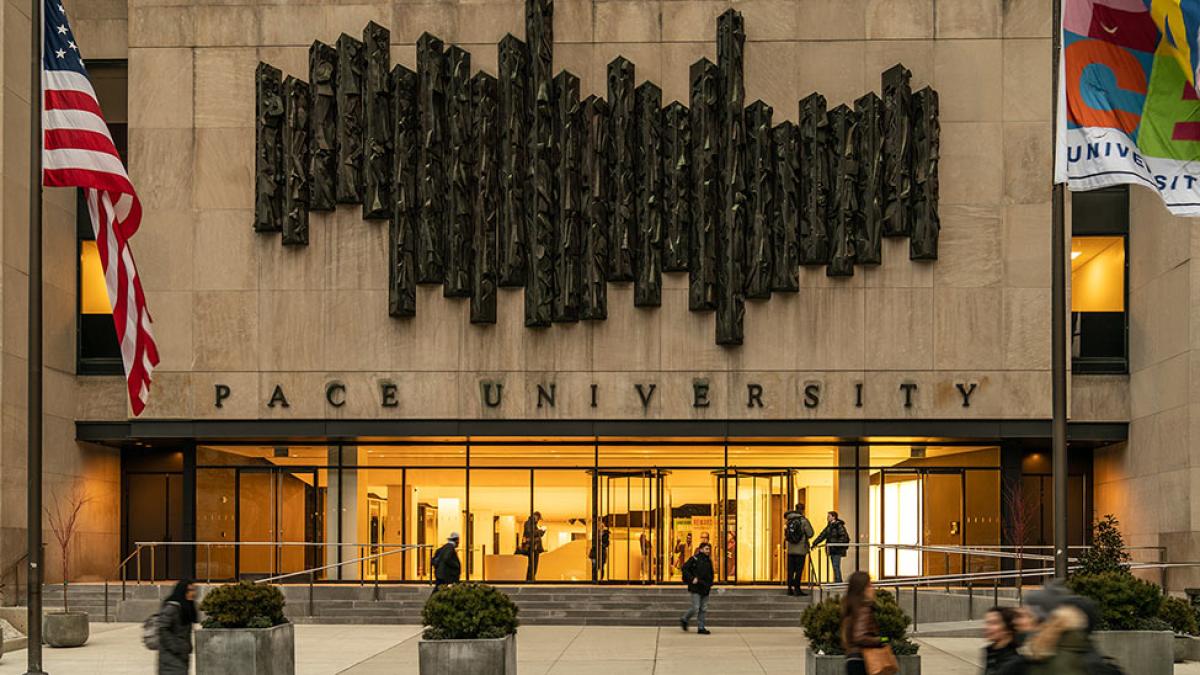
Liani Frederick ’25 is one of 2,100 Undergraduate Students Selected to Receive Funding to Study Abroad
Award Funded Through the Prestigious Benjamin A. Gilman International Scholarship Program

Liani Frederick, a third-year student majoring in Psychology, has earned a scholarship from the federal government to take her studies on the road, Pace University today announced.
In winning the Benjamin A. Gilman International Scholarship, Frederick ’25 is among 2,100 undergraduate students from across the country who will be studying abroad with the support through the U.S. Department of the State Bureau of Educational and Cultural Affairs (ECA), which aims to expand access to international education opportunities to Americans across the socioeconomic spectrum.
On average, 70 percent of Gilman recipients self-identify as racial or ethnic minorities while 60 percent are from rural areas and small towns across America; inspired half of all winners are first-generation college or university students. The Gilman Scholarship contributes to the Department’s diversity, equity, inclusion, and accessibility efforts to engage the American people in foreign policy.
“I’m so grateful for this opportunity,” Frederick said. “Through the Gilman Scholarship, I’ll be studying at Regent’s University London. I will be taking courses that will help me in completing my Pace degree and furthering my goal of becoming a pediatric psychiatrist.”
Pace Study Abroad, which offers programs throughout the world, partners with the Office of Prestigious Awards at Pace to advise students during the application process. Throughout the recent cycles, the two offices held information sessions to help students better prepare for their applications.
“I would like to extend my congratulations to Liani Frederick for being the only Pace student to receive this prestigious scholarship this cycle,” said Moira Egan, Ph.D., Director of Prestigious Awards and Graduate Fellowships. “For many undergraduate students the Gilman Scholarship provides unique access to life-changing overseas education opportunities. I am grateful for the Gilman program's generosity and genuine interest in our students, as I have seen firsthand how many doors can be opened via overseas education.”
The U.S. Department of State’s Benjamin A. Gilman International Scholarship Program enables students to gain proficiency in diverse languages and cultures, skills that are critically important to their academic and career development. Since the program’s inception in 2001, more than 38,000 Gilman Scholars from all U.S. states, the District of Columbia, Puerto Rico, and other U.S. territories have studied or interned in more than 160 countries around the globe.
By supporting undergraduate students who have high financial need, the program has been successful in supporting students who have been historically underrepresented in education abroad, including but not limited to first-generation college students, ethnic minority students, students with disabilities, students attending HBCUs (Historically Black Colleges and Universities) or other minority-serving institutions, students attending community colleges, rural students, and students coming from U.S. states with less study abroad participation.
Learn more about the Gilman scholarship, and its recipients, including this newest cohort.
About Pace University
Since 1906, Pace University has been transforming the lives of its diverse students—academically, professionally, and socioeconomically. With campuses in New York City and Westchester County, Pace offers bachelor, master, and doctoral degree programs to 13,600 students in its College of Health Professions, Dyson College of Arts and Sciences, Elisabeth Haub School of Law, Lubin School of Business, School of Education, and Seidenberg School of Computer Science and Information Systems.
Advocating for Animals: Dyson Students Take Action
The Animal Policy Project, an initiative through the Environmental Studies and Science department, is giving students first-hand opportunities to advocate for legislation surrounding animal issues.
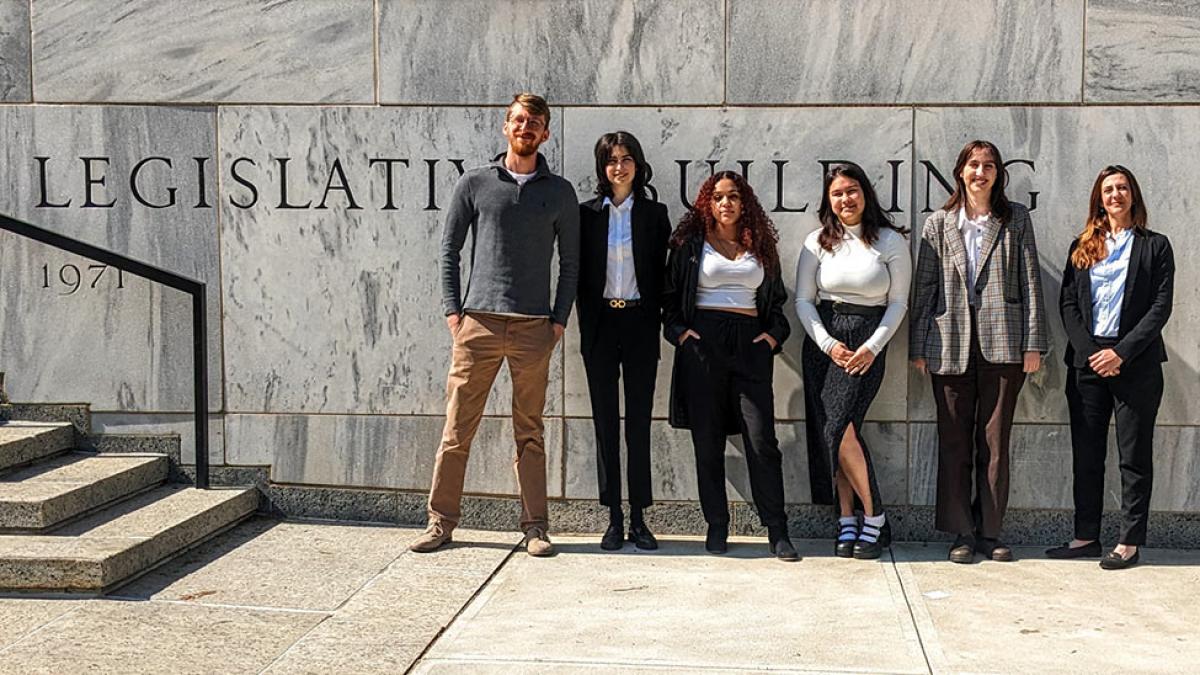
The Animal Policy Project, an initiative launched by Professor Michelle Land, JD, within the Environmental Studies and Science department in Pleasantville this academic year, puts students at the forefront of animal issues, immersing them in hands-on research aimed at influencing policy while developing advocacy skills. Offering opportunities for students of all majors and at the undergraduate and graduate levels, the Animal Policy Project houses its cornerstone course entitled the Animal Advocacy Clinic, connects students to industry mentors on the Animal Policy Project Advisory Council, and presents firsthand experiences in lobbying.
“The Animal Policy Project is really about giving students opportunities to learn how to advocate for something they’re passionate about and connecting them to experts and resources,” said Land. “The topics we’re studying in the Clinic are all related to animal issues in New York State and have a science-based component, but students can employ the skills they learn in critical thinking, information-gathering, advocacy, and public speaking in any discipline or career.”
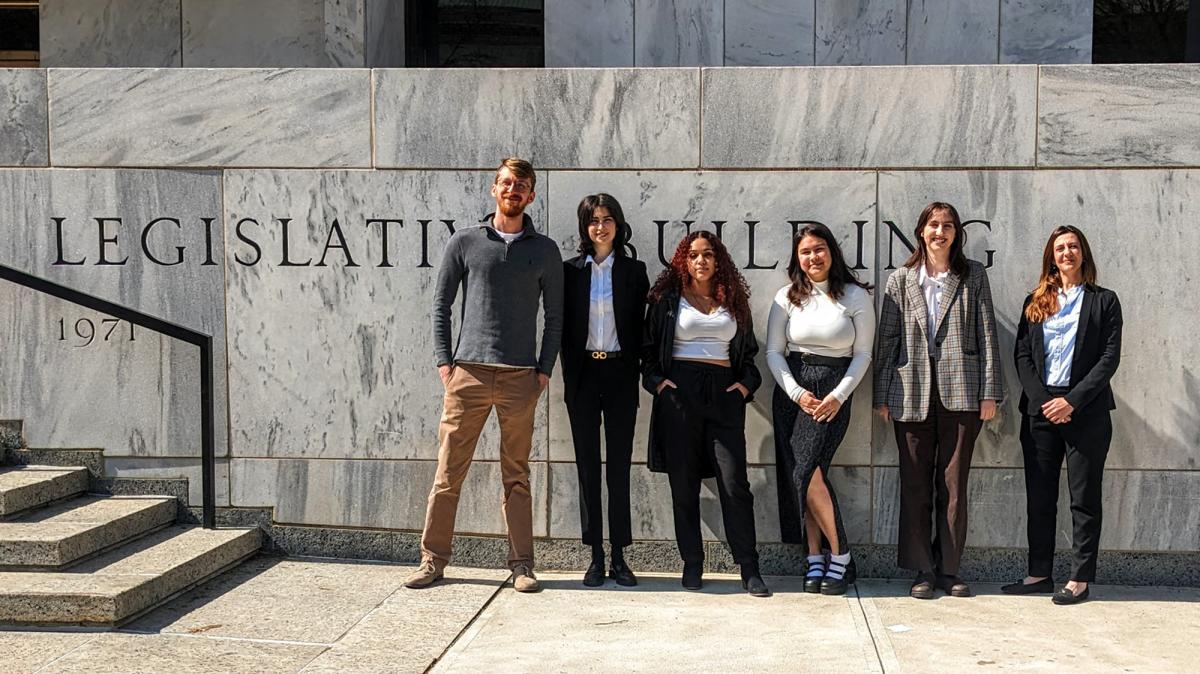
Animal Advocacy Clinic
This spring, students in the Animal Advocacy Clinic course were organized into groups to focus on various issues surrounding the treatment of animals and how animals impact the ecosystem. In late April, a group of students from the course, along with faculty advisors and other students involved in the Animal Policy Project, went to the state capitol in Albany to meet with legislators, share their research, and lobby for the passage of a bill designed to ban wildlife killing contests.
Wildlife Killing Contests
Wildlife killing contests are competitions in which any person with a state hunting license can participate to kill as many animals of a certain species as possible to win cash and prizes. Typically, the targets are “nuisance” animals, such as squirrels, coyotes, or foxes. These competitions, which are difficult to find—typically only advertised through private Facebook groups—are not regulated by the New York State Department of Environmental Conservation and can have harmful effects on the ecosystem of the area.
“In a certain small area, if you kill a higher number of, say, coyotes, they will repopulate even more to account for this,” said Leanna Ward ’25, Digital Journalism, a member of the group that researched wildlife killing contests. “So, there will be even more of an issue with coyotes in the area, which is the opposite of what these contests are supposed to be for.”
Ward also mentioned that traditional hunters are often critical of wildlife killing competitions because the contests do not follow fair chase rules or hunting ethics.
Bill A2917, introduced by New York State Assemblymember Deborah Glick, Chair of the Environmental Conservation Committee—who represents the area in which the Pace New York City campus resides—advocates for the banning of wildlife killing contests in New York. The bill has been proposed numerous times, often getting “stuck” in the Environmental Conservation Committee and not making it to the floor of the Assembly.
Animal Policy Project partner The Humane Society proposed the bill and New York State Director Brian Shapiro, who serves on the Animal Policy Project’s Advisory Council, worked closely with students in creating a campaign to support its passage. The students in the Animal Advocacy Clinic gathered 525 petition signatures in support of the bill from the Pace community before heading to Albany to deliver the petition and lobby for the passage of the bill.
“It was really rewarding to educate people on campus,” said Ward. “It’s really important for lobbyists to come through in situations like this.”
At the time of publication, Bill A2917 passed in both the state senate and assembly and is awaiting approval by Governor Kathy Hochul.
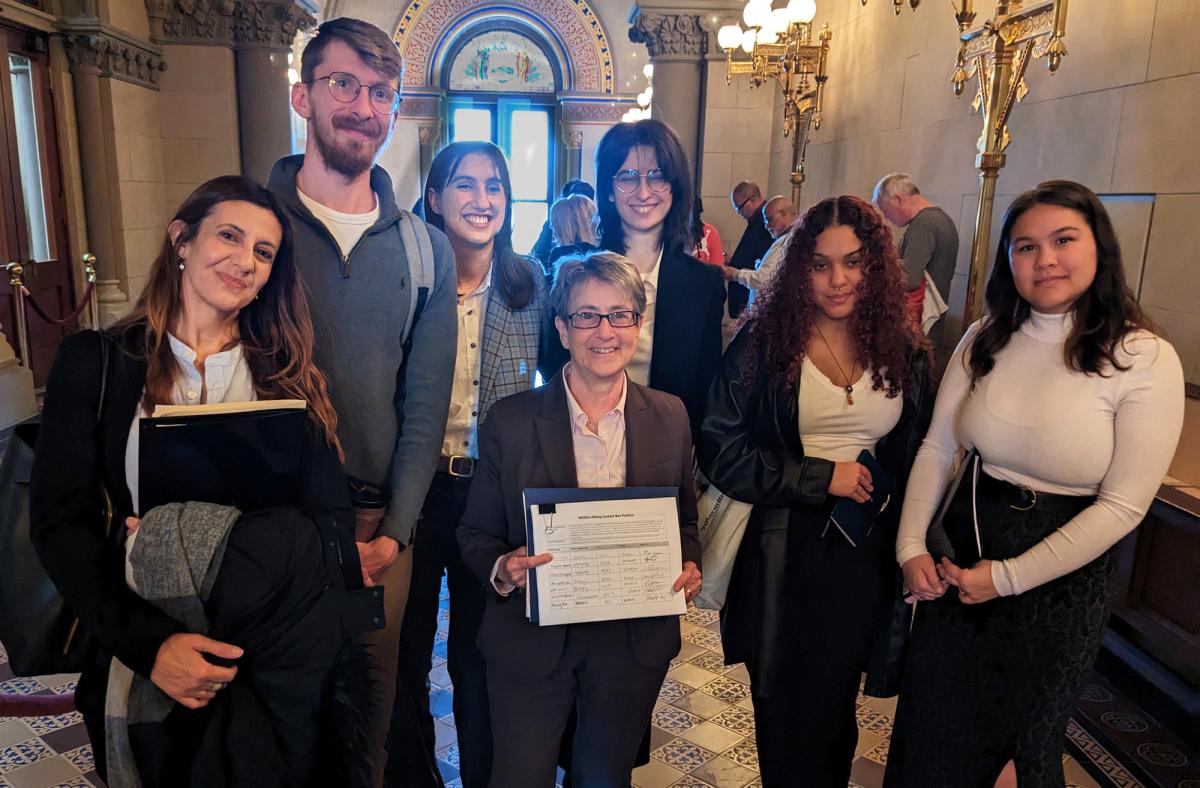
Exotic Animal Ownership
Another group in the Animal Advocacy Clinic focused their research on exotic animal ownership. While the definition of exotic animal ownership varies by state, New York State Senator Monica Martinez has proposed a bill to clarify and expand what is considered a “wild animal” and an “exotic animal” in New York. Under the proposed bill, any “indigenous, non-domesticated animal native to the country in which they live” would be considered a wild animal, while an exotic animal would be defined as a wild animal with “an origin of a different continent.”
This clarified definition would expand the list of animals that cannot legally be kept as companions in New York State, including examples such as hyenas, elephants, kangaroos, sloths, wallabies, and armadillos.
“Exotic animals are sold in large quantities to people who are not technically prepared to own and care for these animals,” said Travis Gerber ’23, Psychology, noting that many pet stores sell animals bought from breeders who use unknown sources. “It’s so problematic in New York State that we don’t have comprehensive legislation in place when it comes to caring for such animals.”
A member of the group working on this topic, Gerber noted that he and his classmates corresponded with Senator Martinez, sending her examples of other states that have passed legislation banning exotic animal ownership in hopes of providing support to get the legislation passed in New York.
“I’ve definitely learned more about how legislation is created and introduced in the Assembly and the Senate,” said Gerber, “and how we can reach our senators and legislators, learn to lobby for advocacy, and discover that a lot more can be done with all the research we’ve done.”
At the time of publication, Bill A6211B had passed in the New York State Senate and is in the Assembly Environmental Conservation Committee.
Graduate Research
Graduate students in the Master of Science in Environmental Science and Policy program worked closely with the Animal Policy Project for their research projects in the spring semester, with mentorship from Land, as well as environmental professionals from the Animal Policy Project Advisory Council.
Something that’s so unique about the Animal Policy Project is combining the science and legislative pieces, because it’s so important to have both of those to be successful in advocating.
—Andrea Galassi ’23
Wildlife Health
Andrea Galassi ’23, MS Environmental Science and Policy, opted to pursue this degree to supplement the Master of Law she earned from The Elisabeth Haub School of Law at Pace University, with a focus on environmental law. For her independent research project, Galassi focused on wildlife health monitoring. Certain states have systems or databases that monitor diseases or other health issues facing local animal populations and the subsequent impacts on the ecosystem. However, these systems are often difficult to find or out-of-date, and states do not communicate or cooperate on the collection of this data.
Galassi mentioned that veterinarians are engaged in robust work in monitoring wildlife health, but this work often goes unrecognized at the state and federal level. Galassi’s research aims to get the attention of New York State legislators to move forward with policies to streamline and expand these processes.
Galassi worked with Advisory Council member Dr. Deborah McCauley, DVM, executive director of the Veterinary Initiative for Endangered Wildlife (V.I.E.W.), who helped shape her research, pointing her in the direction of important resources to help provide persuasive information to legislators.
“Something that’s so unique about the Animal Policy Project is combining the science and legislative pieces,” said Galassi, “because it’s so important to have both of those to be successful in advocating.”
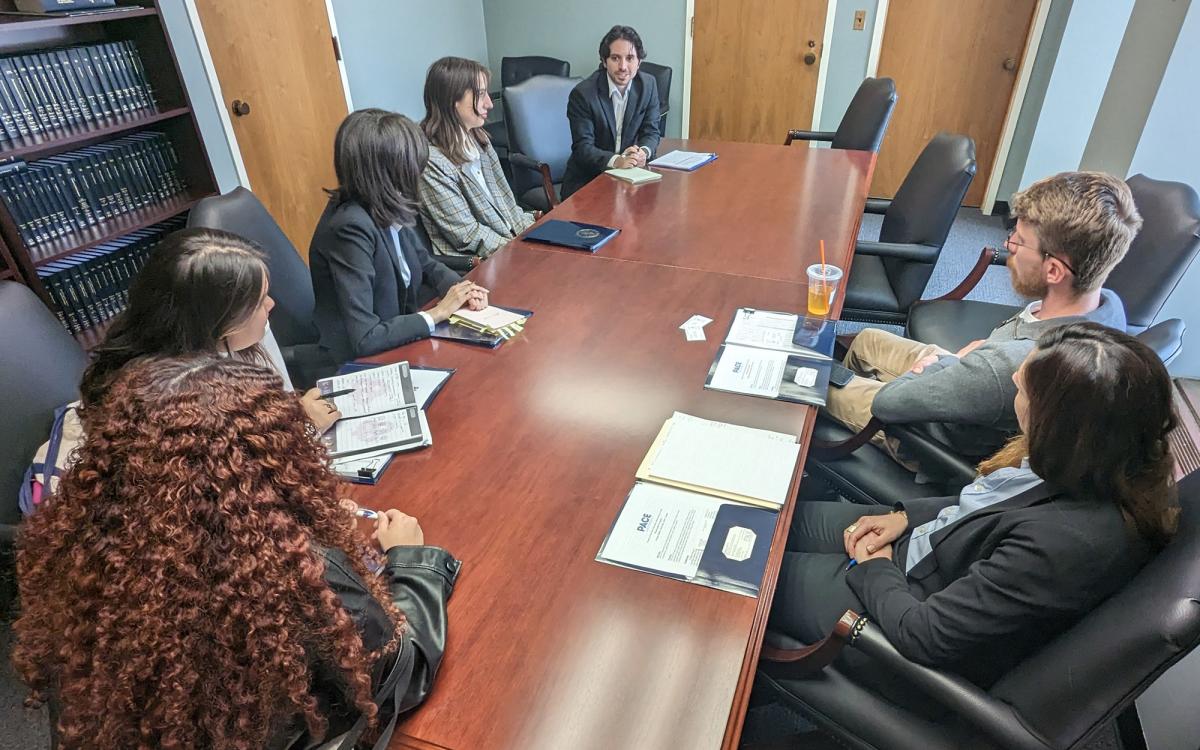
Anticoagulant Rodenticides
Taylor Ganis ’23, MS in Environmental Science and Policy, hopes to use the research she conducted in her capstone project to advocate for a statewide ban on anticoagulant rodenticides (AR), poison used to kill mice and rats that is dangerous for humans, wildlife, and pets.
“As a New York State Licensed Wildlife Rehabilitator, I recognized the importance of protecting wildlife from unnecessary poisoning while also researching alternatives to protect people from rodent infestations,” said Ganis. “This topic presented challenges that I wanted to learn more about to be part of the solution.”
With the help of Advisory Council member and fellow wildlife rehabilitator Suzie Gilbert, Ganis distributed a survey to better understand the usage and dangers of ARs. Gilbert assisted Ganis in building connections, finalizing survey questions, and distributing the survey.
“The most rewarding part of my research has been to see how many people truly care about the wellbeing of wild animals,” said Ganis. “From meeting with various organizations and individuals to reading through the survey participants responses, I was blown away by the passion that so many people hold for protecting our state’s wildlife.”
The research and advocacy that students engaged in during the spring semester are just the beginning for the Animal Policy Project. Land’s goal for the initiative is continued growth, including research on ongoing animal issues, introduction of new topics, fostering more connections across the University on animal issues, hosting guest speakers and events, and more first-hand advocacy opportunities.
Dyson Digital Digest: Summer 2023
In recognition of her exceptional service to her community, Dean Tresmaine R. Grimes, PhD, has been named a national finalist for the Jefferson Award, an honor referred to as the “Nobel Prize of service.”
As the newly appointed director of experiential learning and the Pace Path, Associate Professor of English Kelley Kreitz, PhD, is exploring how Pace’s approach to hands-on pedagogy enhances student success and sets the University apart.
As the Class of 2023 prepares to cross the stage on May 15 at the USTA Billie Jean King National Tennis Center, graduating students in the natural sciences shared their plans for the future and reflected on their most memorable moments from their time at Pace.



